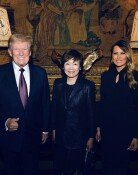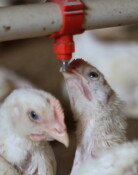Will the outcries of 3.5 million small business owners be ignored?
Will the outcries of 3.5 million small business owners be ignored?
Posted July. 13, 2018 07:49,
Updated July. 13, 2018 07:49
The Korean Federation of Micro Enterprises, which represents some 3.5 million small businesses in the country, held a press conference Thursday and announced that it “refuses to follow increased minimum wage policy unilaterally enforced by the government.” The Korean Federation of Convenient Store Franchises, which represents the owners of some 70,000 convenience store owners, also condemned the wage increase as an “attempt to uproot the lives of small business owners, drive them into poverty and portray them as law breakers.” The organizations called for differentiated application of the minimum wage policy per business sectors and freezing of the wage levels. They also announced that they are willing to simultaneously shut down business across the country. The rise of wages, which rose 16.4 percent this year and slated for another steep rise next year, has driven small business owners, who rarely take group action unlike labor groups, to secure rights for living.
The self-employed, which account for more than 25 percent of workers, are already suffering from severe financial difficulties. Some 2.5 percent of small businesses in restaurants, lodging and retail sectors went out of business last year, exceeding business founding rate of 2.1 percent. In other words, there are more businesses that close down than the ones opening. The operating income of small businesses average at 2.09 million, which is only 63 percent of salaried employees’ monthly average wage of 3.29 million won. It is no exaggeration that the sharp rise of minimum wages mean that small business owners earn less than their employees.
Small business owners are merely asking for the increase of minimum wage next year to be applied differently per business sector. However, this was denied at the Minimum Wage Commission meeting held on Tuesday. The refusal is the outcome of pro-labor, public interest commission members, who unanimously voted against the proposal. It is no wonder that the members of the Minimum Wage Committee, which is biasedly consisted of 27 members with nine members respectively representing workers, users and public interests members, have boycotted the proposal.
The aftermath of the minimum wage increase has become a reality that even the government cannot deny. The growth of employed persons for the recent five months is still below 100,000, and the employment situation is likened to that of the global financial crisis in 2008. In particular, the number of employed persons in retail and wholesale, lodging and food service, industries most severely impacted from the wage increase, shrank by 31,000 last month, representing a decrease for the seventh consecutive month. If the wage goes up again next year as promised by the presidential election pledge, it will undoubtedly spell a major catastrophe to small businesses. The social expenses of stealing employment opportunities for the lower class and driving small business owners to the brink of a precipice has gone too far. The meeting scheduled for Saturday, which will determine minimum wage for next year, should be a turning point to reverse the government’s misled policy.
Headline News
- Joint investigation headquarters asks Yoon to appear at the investigation office
- KDIC colonel: Cable ties and hoods to control NEC staff were prepared
- Results of real estate development diverged by accessibility to Gangnam
- New budget proposal reflecting Trump’s demand rejected
- Son Heung-min scores winning corner kick







